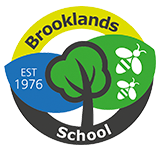Online Safety
Online safety refers to the act of staying safe online. It is also commonly known as internet safety, e-safety and cyber safety. It encompasses all technological devices which have access to the internet from PCs and laptops to smartphones and tablets.
In school, all content is filtered and monitored via North Yorkshire County Council's chosen web filtering service provider, 'Smoothwall'.
7 Questions to Help you Start a Conversation with your Child about Online Safety
CEOP
What is CEOP and what do they do?
•CEOP is the Child Exploitation and Online Protection unit within the National Crime Agency.
•CEOP is committed to tackling child sexual abuse and exploitation (CSAE), both online and offline
•CEOP is a multi-disciplinary child protection agency.
•Child centred approach.
When should I report?
If you’re worried that your child is being groomed online or sexually exploited you should report your concerns to CEOP.
It is not always easy to spot the signs of online grooming and sexual exploitation so if you have any concern at all about someone your child is in contact with, you should get in touch.
You should always report if your child is or has been in contact with someone who is:
- Chatting online to your child about sex
- Asking them to do sexual things on webcam
- Asking to meet up if they’ve only met them online
- Requesting sexual pictures
- Forcing them into sexual activity
- Making them feel unsafe
CEOP is a command of the National Crime Agency and can investigate what is happening – with the assurance that the safety and wellbeing of your child is paramount at all times.
If you are concerned that your child is in immediate danger, call 999.
www.nationalcrimeagency.gov.uk
www.ceop.police.uk/safety-centre
Twitter- @ceopuk
Facebook- www.facebook.com/clickceop
YouTube- www.youtube.com/ceop
National Online Safety
National Online Safety has created many guides to help parents understand online safety and the dangers that can be faced when using apps and games.
https://nationalonlinesafety.com/about
Conversation Starters for Parents and Carers: Online Content
Being safe online means individuals are protecting themselves and others from online harms and risks which may jeopardise their personal information, lead to unsafe communications or even effect their mental health and wellbeing.
Operating within an online space is something most of us simply do subconsciously, but have you ever stopped to consider the potential dangers which exist on the web, especially for our children?
A recent Ofcom ‘Children and Parents: media use and attitudes report 2019’ report released last week found that children are more engaged online than they’ve ever been. Ownership of smart devices is increasing and the range of content they are viewing is expanding.
In an ever-changing world, ensuring pupils’ safety online has never been more important. It’s an all-encompassing duty and something everyone must be vigilant of.
Issues that your child may encounter on the internet will vary depending on their age and online activities.
What Parents Need to Know about Children's Devices
An estimated one-third of children have a social media account, so it’s important that trusted adults know what content young people are consuming, what they’re posting and the interactions they’re having. On social media, it can be easy to go down a rabbit hole that isn’t beneficial to our wellbeing. As platforms grapple with managing ‘legal but harmful’ content, lives are being impacted – sometimes to tragic effect. We might be daunted by the scale of the tech giants and their content which enthrals young people, but we can still help children to be mindful of their mental wellness: recognising when something isn’t OK … and knowing what to do about content that upsets them.
What Parents Need to Know about Social Media & Mental Health
Even before lockdowns inflamed the situation, one in every five 10- to 15-year-olds was experiencing bullying online: abusive messages, having rumours spread about them or being excluded from group chats, for example. Through smartphones and tablets, we’re used to being able to communicate from anywhere, at any time – but digital devices became commonplace so quickly that it caused a problem: as a society, we haven’t properly adjusted to how different they’ve made life. Our top tips can help you to build positive relationships online and avoid some of the potential issues.
10 Top Tips for Respect Online: Inspiring Children to Build a Better Digital World
Other Useful Guides and Resources
Supporting Children To Deal With Upsetting Content
What Parents need to know about Age-inappropriate Content
Keeping children safe online | NSPCC
Parents and Carers - UK Safer Internet Centre
UK Safer Internet Centre O2 - Online Safety Guide
 Ofsted Report
Ofsted Report Parent View
Parent View Term Dates
Term Dates 


